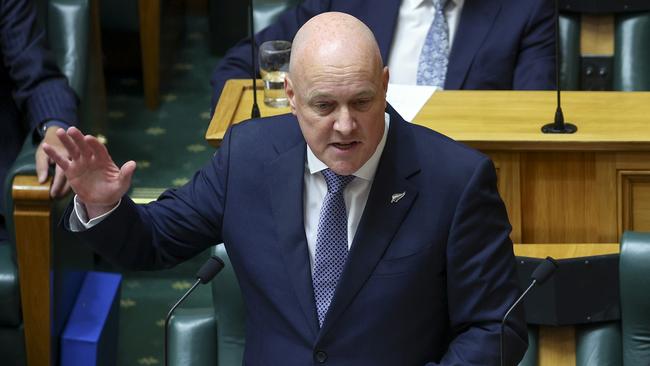
Ministers have reminded bureaucrats that government business should be conducted in the vocabulary of 89 per cent of Kiwi homes. The convention of writing public signage primarily in English is to be restored, rather than Te Reo Maori, a language only 50,000 New Zealanders speak fluently, mostly in the northernmost districts of North Island.
The re-anglification of civic life is high on the agenda of the new woke-busting, swamp-draining conservative coalition led by mild-mannered former businessman Christopher Luxon.
Together with his coalition partners, NZ First’s Winston Peters and ACT’s David Seymour, Luxon has set out a detailed plan for the restoration of sanity after the destructive experiment conducted by Jacinda Ardern.
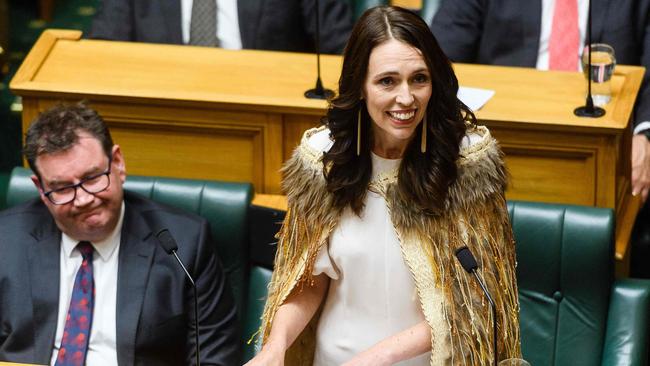
The two agreements Luxon signed with his partners a fortnight ago represent a comprehensive rejection of every progressive measure introduced by the former Labour government.
For members of the country’s small but vocal elite, such as Te Pati Maori (formerly the Maori Party) co-leader Debbie Ngarewa-Packer, the agreements are “a flashback to the 19th century … a manifesto of white supremacy and cultural genocide”, a win for “profiteers, landlords, conspirators, and climate deniers”.
For much of the rest of the country it is as if dawn has broken on a home-alone party of rebellious teenagers and the adults are back in charge.
October 14, 2023 was a day of insurrection on both sides of the Tasman. In separate ballots, Australians and New Zealanders independently arrived at the same conclusion: race-based privileges are anathema to our way of life.
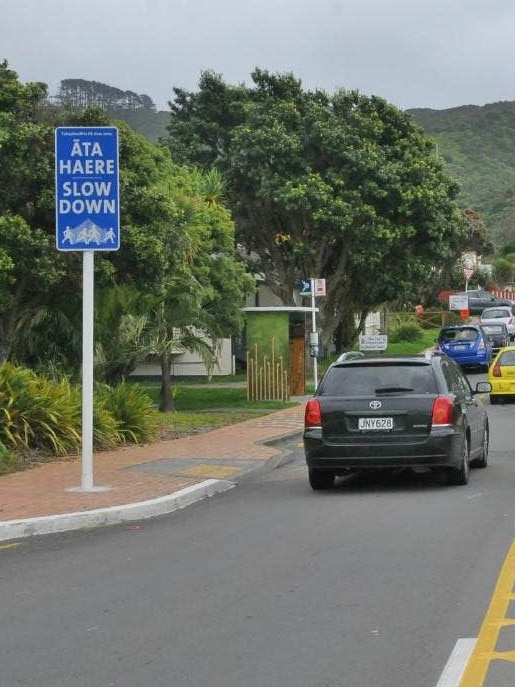
The results of the general election in NZ and the Australian referendum on the voice to parliament were a decisive rejection of the divisive politics of identity and Indigenous separatism. Citizens of both countries asserted they were equal before the law, with the same rights and obligations, and with the guarantee of the privileges and responsibilities of citizenship.
They were crushing defeats for the Indigenous establishments. Of the 650,000 Maoris entitled to vote, fewer than 88,000 or 14 per cent voted for Te Pati Maori.
“How can they call themselves the Maori voice?” Peters asked parliament last week. “All their highfalutin Auckland University sociology department claptrap, making it up as they go along.
“That is not what people want out in the Maori world. You know what they want? They want an affordable house, they want to get medical treatment as soon as they possibly can, and they want to get on the escalators that take you, with education, as far as you’d want to go. And the fourth thing Maori want is First World wages.
“We’re not coming back here to listen to this humbug any longer. We want this country to be called New Zealand.”
Work on He Puapua, a radical blueprint for separating NZ into two sovereign states, has been abandoned. It ends plans for a Maori court system, health system, upper house or parliament, the protection of Maori seats in parliament and compulsory Maori history in schools. It stops plans to renegotiate the Treaty of Waitangi ahead of the 200th anniversary of its signing in 2040.
The reaction from Maori separatists has been petulant and swift. Last Monday, a protest organised by Te Pati Maori took to the streets, blocking traffic in Auckland and other towns. However, the attempted show of strength served only to demonstrate its irrelevancy as a fringe movement, no more important in public life than Extinction Rebellion.
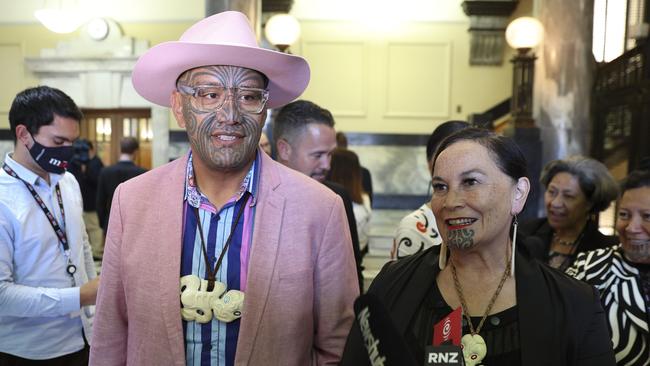
The shock is understandable. The radical activists have been empowered by the most progressive government in New Zealand’s history for six years. Together with the Green Party, they grabbed the agenda of the most progressive, far-left government the country has seen, pushing through a string of anti-business, anti-farming measures that restrict individual autonomy.
Labour, whose parliamentary presence has been reduced from 65 members to 34, faces the task of rediscovering for whom it stands.
“Members opposite do not own Maori,” newly elected Nationals MP James Meager told parliament last week in a maiden speech in which he spoke of his Maori ancestry.
“Members opposite do not own the poor. Members opposite do not own the workers.
“What unites us (the Nationals) is our fundamental belief that it’s the individual family unit that knows what’s best for their family – not the state, not the government.”
The magnitude of the political earthquake on October 14 cannot be overstated. The coalition agreements press the reset button on economics, health, education, welfare, and law and order.
“It’s a 180-degree turn,” says Oliver Hartwich, of the New Zealand Initiative. “This is probably the most right-wing New Zealand government for decades.”
The government is committed to spending within its means, simplifying employment laws and relieving the Reserve Bank of New Zealand of its role as “guardian to the financial ecosystem of Aotearoa” so it can get back to managing price stability.
The government will tell teachers to return to their core business of literacy and numeracy and restore balance to the history curriculum. Mobile phones and transgender indoctrination will be banned from the classroom. Charter schools will be encouraged, and teachers will be held accountable.
Hundreds of extra police will be trained to deal with the crime wave and the government will introduce mandatory sentences and boot camps for hardened young offenders. Free speech will be protected by abandoning hate speech legislation and a top-level inquiry will examine the management of Covid-19.
Red tape will be reduced to allow farmers to farm. An expensive pumped hydro project will be scrapped, and gas and geothermal exploration will be encouraged.
The timing could not be more urgent. New Zealand recorded its worst-ever results in the OECD’s Program for International Student Assessment this year, finishing 12th in the overall rankings, one place behind Australia.
The International Monetary Fund forecasts that economic growth will fall to 1 per cent next year, ranking NZ in 180th place, just ahead of Peru and the Central African Republic.
As the prelude to the agreement between the Nationals and NZ First puts it, the united aim of the coalition is to “provide stability, grow economic prosperity, restore national unity and boost social cohesiveness”.
The ambition is audacious: to restore the country’s former reputation as a world economic and social leader, to make a united New Zealand great again.
Nick Cater is senior fellow at the Menzies Research Centre.



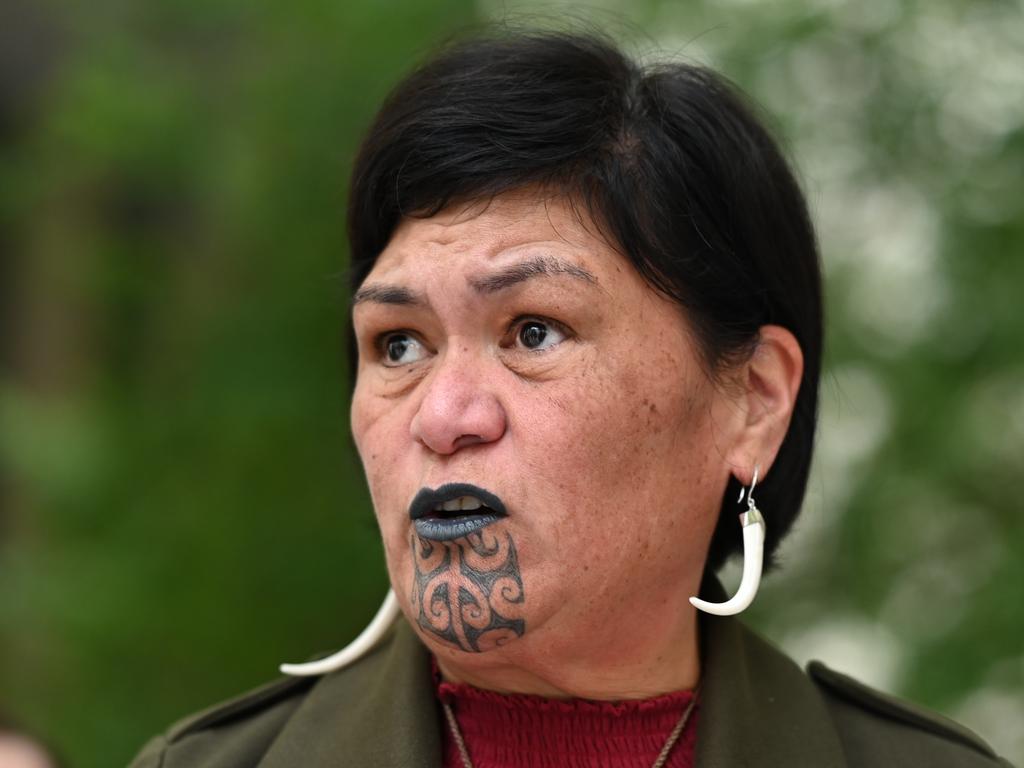



New Zealand’s 42nd Prime Minister has committed to introducing a bill to parliament nominating English as the country’s official language, a measure none of his predecessors seemed to think was necessary.